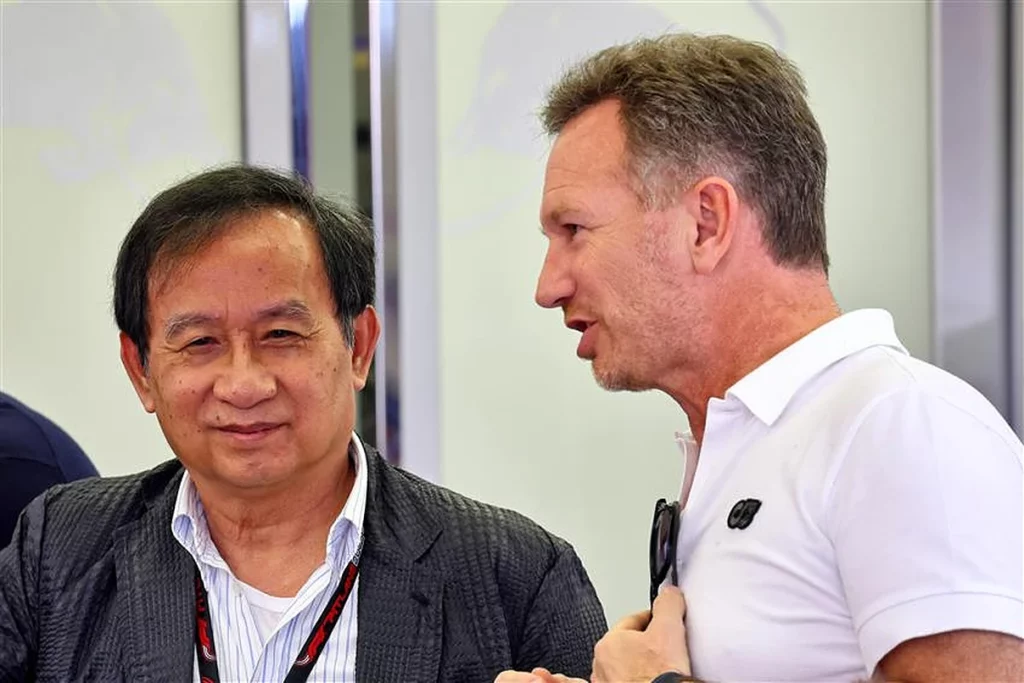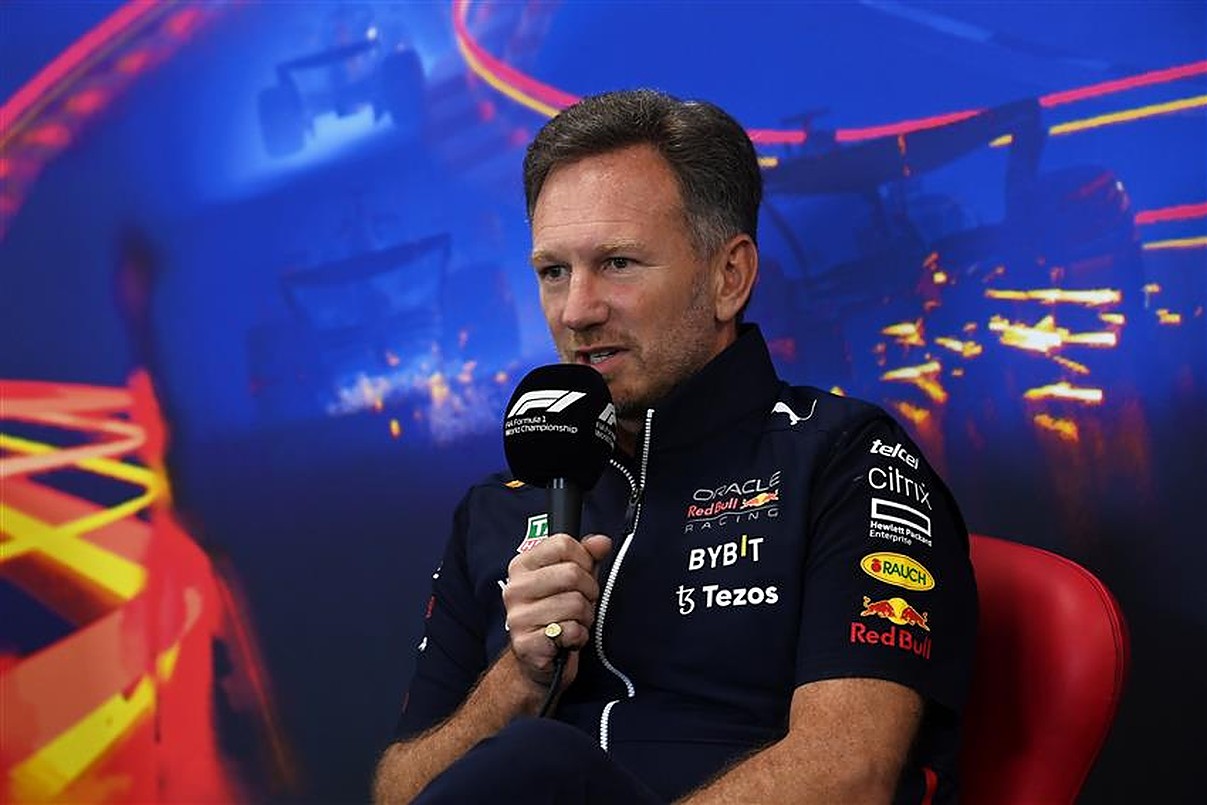Red Bull team principal Christian Horner has called for his fellow team principals to look into the current rules against a third car being introduced, something which two teams have been penalised for in recent races.
Back at the Japanese Grand Prix, Logan Sargeant was penalised after crashing heavily at the end of Q1, resulting in his car needing to be rebuilt.
As a result, Williams had to fit the American driver’s car with a new chassis, something the FIA believed broke the rules on a third car being prohibited.
Red Bull broke the same rule at the recent Qatar Grand Prix, following Sergio Perez’s crash during the sprint race.

Want to work in Formula 1? Browse the latest F1 job vacancies
Perez wasn’t actually responsible of causing the crash and was simply a victim; however, Red Bull had no choice but to accept the pit-lane start penalty given the extent of the damage to his RB19.
Given that the rule has been used against two teams in back-to-back races, Horner has called for it to be looked into by the team bosses, especially as neither car would’ve been able to start had they not broken the regulation.
“I think it’s something that team managers need to look at, something a bit more sensible, because now for two weeks with Williams and ourselves, it has been far from ideal,” Horner said.
Horner went onto stress that Red Bull stood “no chance” of repairing Perez’s car at the Lusail International Circuit had they not broken the third car rule, as the Mexican’s car had significant damage to its “crash structure”.
READ: Red Bull warn Aston Martin about trying to steal their driver
“No chance,” Horner admitted. “With the damage to the crash structure and so on, that would have been impossible… They did a phenomenal job to turn it all around.”
Perez ultimately recovered to P10 at the Qatar GP following his pit-lane start, securing just a single point.
Each team actually used to have spare car – known as a T-car – although this was banned in 2008, with some having called for it to return, something which could be a challenge in the current cost cap era of the sport.

